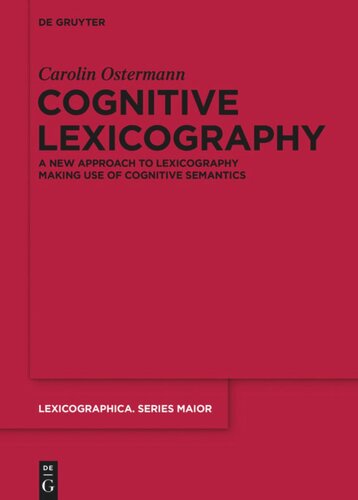

Most ebook files are in PDF format, so you can easily read them using various software such as Foxit Reader or directly on the Google Chrome browser.
Some ebook files are released by publishers in other formats such as .awz, .mobi, .epub, .fb2, etc. You may need to install specific software to read these formats on mobile/PC, such as Calibre.
Please read the tutorial at this link: https://ebookbell.com/faq
We offer FREE conversion to the popular formats you request; however, this may take some time. Therefore, right after payment, please email us, and we will try to provide the service as quickly as possible.
For some exceptional file formats or broken links (if any), please refrain from opening any disputes. Instead, email us first, and we will try to assist within a maximum of 6 hours.
EbookBell Team

4.8
64 reviewsEnglish lexicography and linguistics have always shared close ties, yet the potential of cognitive linguistics for lexicography has only been hesitantly acknowledged in the literature. This is what cognitive lexicography attempts to change by using insights gained in cognitive semantic research for the development of new dictionary features. After a short survey of the history and practice of English monolingual learner lexicography, as well as an outline of the relationship between linguistics and lexicography, three new dictionary features are developed. They cover three different cognitive semantic theories as well as three different parts of the monolingual dictionary entry, each time for a new set of lexemes. Frame semantics, conceptual metaphor theory, as well as cognitive conceptions of polysemy, are used to create a new example section for agentive nouns, a new defining structure for emotion terms and a new microstructural arrangement for particle entries. Dictionary analyses on all, as well as user studies on two of the features, complement these suggestions. The monograph thus presents a new approach to lexicography that incorporates into its description of lexical items how humans perceive and conceptualise language.